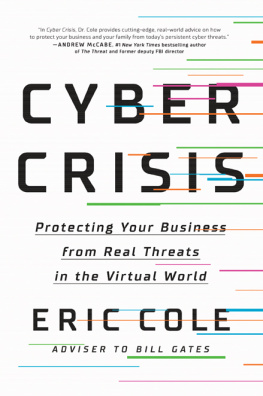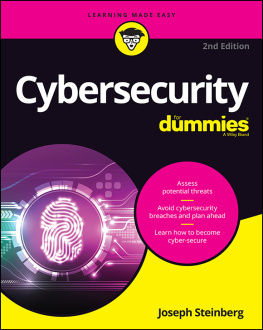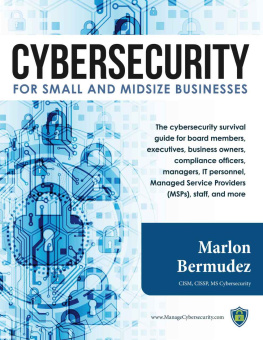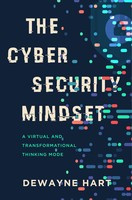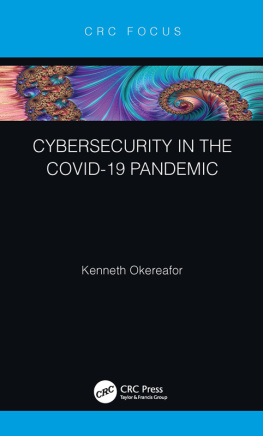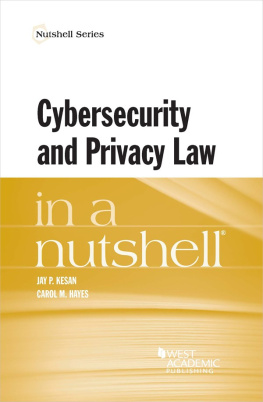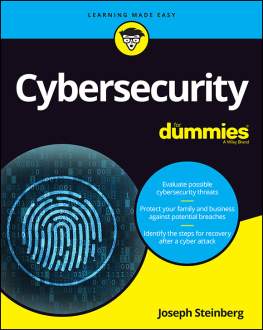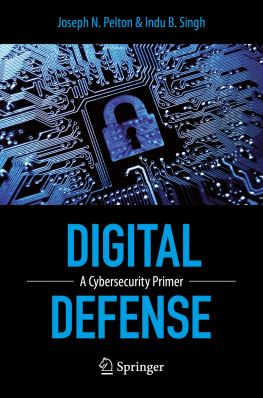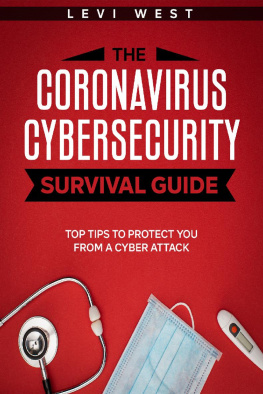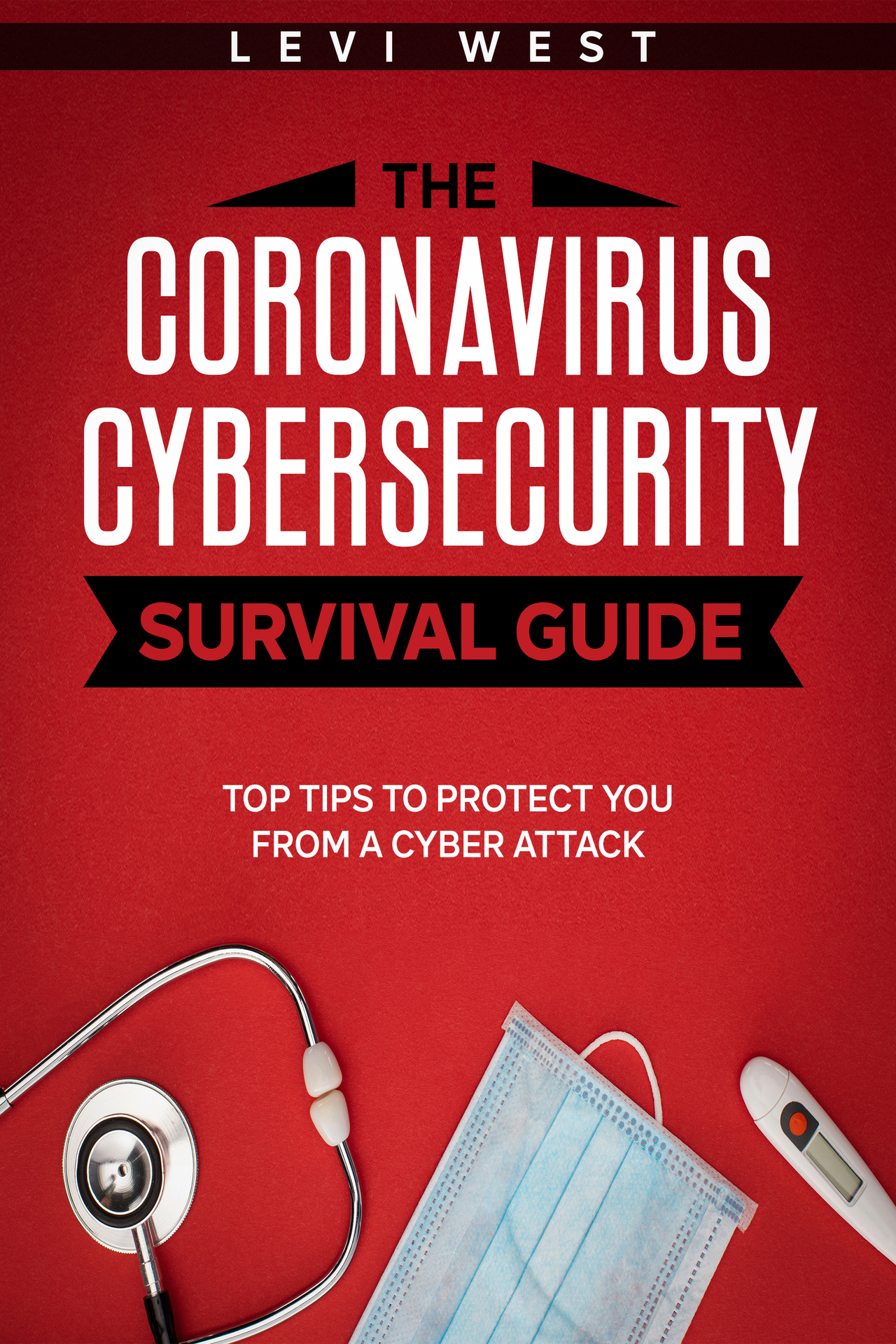The Coronavirus Cybersecurity Survival Guide
Top Tips to Protect You From A Cyber Attack
by
LEVI WEST
Copyright 2020 - All rights reserved.
No part of this publication may be reproduced, distributed, or transmitted in any form or by any means, including photocopying, recording, or other electronic or mechanical methods, without the prior written permission of the publisher, except in the case of brief quotations embodied in critical reviews and certain other noncommercial uses permitted by copyright law.
Under no circumstances will any legal responsibility or blame be held against the publisher for any reparation, damages, or monetary loss due to the information herein, either directly or indirectly.
Legal Notice:
This book is copyright protected. This is only for personal use. You cannot amend, distribute, sell, use, quote or paraphrase any part of the content within this book without the consent of the author.
Disclaimer Notice:
Please note the information contained within this document is for educational and entertainment purposes only. Every attempt has been made to provide accurate, up-to-date and reliable complete information. No warranties of any kind are expressed or implied. Readers acknowledge that the author is not engaging in the rendering of legal, financial, medical or professional advice. The content of this book has been derived from various sources. Please consult a licensed professional before attempting any techniques outlined in this book.
By reading this document, the reader agrees that under no circumstances is the author responsible for any losses, direct or indirect, which are incurred as a result of the use of information within this document, including, but not limited to, errors, omissions, or inaccuracies.
CONTENTS
Introduction
Coronavirus pneumonia (COVID-19) has gripped the world scene. At the time of this writing, most major countries have confirmed cases, and many deaths have been recorded.
Criminal hackers and underground networks have taken advantage of this situation to profit off vulnerable citizens and infrastructure systems. By shifting to teleworking and work-from-home business models, companies have inadvertently created a wider attack surface for cyber threat actors (CTA). IT departments at hospitals and other sectors are staying vigilant because at the most basic level, malware and hacking tools have also become more easily available, allowing those without a coding background to understand and use them.
Coronavirus scams are on the rise. These include many of the same scams cybersecurity professionals have seen before. They may seem new, but they are in fact the same. The main difference is that they are corona-themed. This includes a wide range of schemes such as phishing, ransomware, and fake advertisements. Governments, businesses, and individuals need to figure out ways to stay safe.
Due to this storm, you are a target. You have a lot of valuable information that hackers seek. Protect it, safeguard it, and find ways to bolster your security.
In this book, I will give you dozens of ways to protect your Internet network and devices. This book covers topics such as email, passwords, and software security. It may seem too general, but all of these tips are excellent at defending against corona-themed scams/exploits/attacks. In fact, whether for COVID-19 or another emergency, these suggestions reinforce good security practices and habits.
You can choose to implement any number of these tips or at least understand the reasoning behind them. These suggestions focus on practicality and things you can do right now.
This is a general guide meant to capture the essence of what you need. Pursue further research if you must. The responsibility lies on your shoulders.
And finally, stay safe out there. Be well and take care.
Adopt Strong Passwords, Part I
Why its important: Weak usernames and passwords are often one of the best ways for hackers to get into vulnerable accounts. You wouldnt believe how many people use 1234 or 111111 as their password. These weak passwords can be guessed or brute-forced (systematically guessed via computers).
What can you do? Think of establishing your own system for creating new passwords. Throw in special characters, numbers, and case sensitive letters to add complexity to your account. In addition, try to not use the same passwords more than once. That way if one account is breached, the others wont be comprised as well.
Common Passwords:
- biteme
- qwerty
- password
- 111111
- sparky
- access
- yellow
- 12345678
- abc123
- 1234567
- computer
- password1
- sexy
- 12345
- Cheese
Adopt Strong Passwords, Part II
Why its important: I cannot stress enough the importance of strong passwords. Many accounts have already been compromised, perhaps even yours. Many large-scale breaches have occurred and compromised. Companies like Target, Yahoo, and Marriott have been the victim of hackers. Dont be surprised if your favorite company has suffered a cyber attack.
What can you do? Become familiar with the term pwned when it comes to cybersecurity and passwords. It means that those passwords have been compromised. Consider going to the website https://haveibeenpwned.com/Passwords and see if your email address has breached.
Analyze Privacy Policies
Why its important: Websites are constantly changing the ways they collect and store your data. With the General Data Protection Regulation (GDPR) and other legal frameworks, many companies have had to update the way their collect your data. Websites will examine your data to identify trends and predict user behavior.
What can you do? Every time you connect to a website, visit their privacy page. Read their policies on how they collect your data and what they do with it. Look for the specifics and technical jargon. If the websites you are visiting and shopping on dont have a privacy policy, consider that a potential red flag.
Anticipate Cyber Attacks
Why its important: Hackers are constantly looking for ways to get into your system. Cyber attacks happen every day. A lot of this occurs via computer automation.
What can you do? If cyber attacks can occur at any time, then you must update and defend your systems as soon as possible. Run antivirus software on an automatic basis. Scan all new files that you download to make sure they are malware free. Never install anything you arent comfortable with.
Lock up your valuable information via password protection. All operating systems allow you to hide files as well.
Avoid the Shady Salesmen
Why its important: Con artists create a sense of urgency and scarcity to get users to buy fake products, download free infected software, or enter their credit card information on fake websites.
What can you do? Dont panic buy. Websites and vendors are being setup with new goods that dont exist. They may create fake testimonials and have no real record. They may even promise a cure to the COVID-19. Dont give in and do careful research on any new products that surface. Be wary of suspicious ads and promises that are too good to be true.
Clickbait is one of the cheapest ways for hackers and vendors to harvest your information. They will often present themselves as hyper sensationalized links.
Backup Your Data
Why its important: Murphys Law states that anything that can go wrong probably will. As a consumer, you should have a reliable copy of your data lying around somewhere in case something goes wrong. The number of reasons could range from physical destruction of your device to hardware failure to cyber attack. You never know when your smartphone or computer hard drive could die. A second life will remedy this situation fast.








